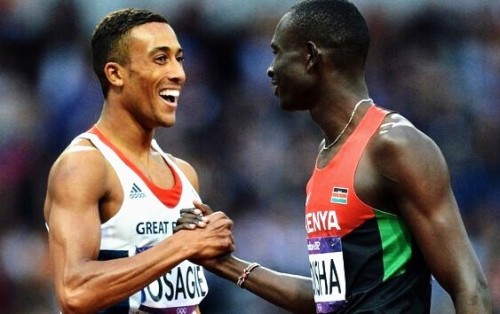
148 posts
Restoring Regina Twala To Her Rightful Place In History.
Restoring Regina Twala to her rightful place in history.

Regina Twala is one of those towering intellectuals that you never hear about. But now, thanks to the efforts of Stanford historian Joel Cabrita, the story of Regina Twala is finally hitting the newsstands.
In her book, Written Out: the silencing of Regina Twala, Joel Cabrita examines how both systemic racism and systemic sexism and their gatekeepers, conspired to disappear from public consciousness one of the 20th century's most important thinkers.
In many ways, Regina broke the mould of what an African woman is supposed to be. She was the second black woman to graduate from the University of Witwatersrand, and the first to graduate in social science in South Africa. She was also a popular newspaper columnist, a role in which she examined the misogyny as well as social and racial disparities of her society.
Regina's active politicization began in 1948 following an election that ousted the more intellectually minded Jan Smuts, and changed the course of South African history by ushering in D. F. Malan and his nationalists who'd install 40 years of racist apartheid government in South Africa.
As an IDP from rural Natal courtesy the Native Lands Act of 1913, Regina's new life in Johannesburg allowed her to rub shoulders with the city's intelligentsia. Regina became intimately acquainted with the likes of Nelson Mandela, she travelled the continent as well and met with Pan-Africanists such as Ghana's Kwame Nkrumah.
With South Africa's political space shrinking every day, the country's black elite massed to the African National Congress (ANC) where they took to protesting against apartheid. In 1952, Regina was herself arrested for participation in the non-violent resistance movement. Shortly thereafter, Regina left South Africa for neighbouring Eswatini where she remained until her death from cancer in 1968.
But Regina wasn't just a political activist, she was also a talented researcher and academic. As the recipient of a Nuffield grant, Regina pursued anthropological research into Swati women, their response to cultural evolution, and the weaponization of African culture with a view to keeping women in their place.
And like all true revolutionaries, Regina had her crosses to bear. She was constantly buffeted by two forces; the ignorance and chauvinism of her fellow Africans, and the envy of so called liberal white academics and mentors. The latter either resented that she'd outgrown their patronage, or stole her work. Athropologist Hilda Kuper for instance, effectively quashed the publication of Regina's final work titled "A study of Swati women." Swedish historian Bengt Sundkler on the other hand, plagiarized Regina's research on indigenous Zionist churches and published it as his own.
But whatever she endured in life, Regina remained true to her ideals. Even whilst in exile she was still working to bring about social change. In Eswatini, Regina became one of the founders of that country's party politics, she confronted royalists and criticized the excesses of the powerful, but she also quickly realized that Sobhuza (the paramount chief of Eswatini who'd become the world's longest reigning monarch) had no intention of expanding democratic space for ordinary Swazis.
-
 devilsteen liked this · 2 years ago
devilsteen liked this · 2 years ago -
 kingofkingsschizo liked this · 2 years ago
kingofkingsschizo liked this · 2 years ago
More Posts from Wanjikusblog
The "let's cut off our noses to spite their faces" crowd.

Recalling the achievements of an unassuming legend.
August 9 2022 marked 10 years since the 800m WR was set in extraordinary style, by an extraordinary athlete, before a fantastic crowd at the London Olympics.

Andrew Osagie and Rudisha. The lanky Maasai warrior whose elegant running style has been described as poetry in motion, paced Osagie to a last place finish that would have won the British athlete gold at the three previous Olympics (Thursday August 9 2012).
Widely regarded as the best race of the London 2012 Olympics, the men's 800 metres assembled a cast that will never be seen again. And in fact, of the men who lined up on that famous August evening, only Rudisha would return to defend his title at the next Olympics in Rio.
Such was the pace that was set by the greatest 800m runner ever, that he pulled the rest of the field to 7 Personal Bests, 3 National Records, and 1 World Junior Record.
But make no mistake about it, Rudisha knew beforehand that he was going to produce something special on the day. He said as much in the warm-up area in the presence of Kip Keino, as well as his younger teammate 17 year old Timothy Kitum.
Then a youngster himself at only 23, Rudisha advised Kitum to run within himself and not to attempt to follow the breakneck pace that Rudisha was about to throw down. Said Rudisha to Kitum, "I’m going to break the world record today and if you follow me you will die."
Chappelle, spot on as always.
"if they're black, its a gang, if they're italian, it's a mob, and if they're jewish, it's a coincidence and you should never talk about it."

